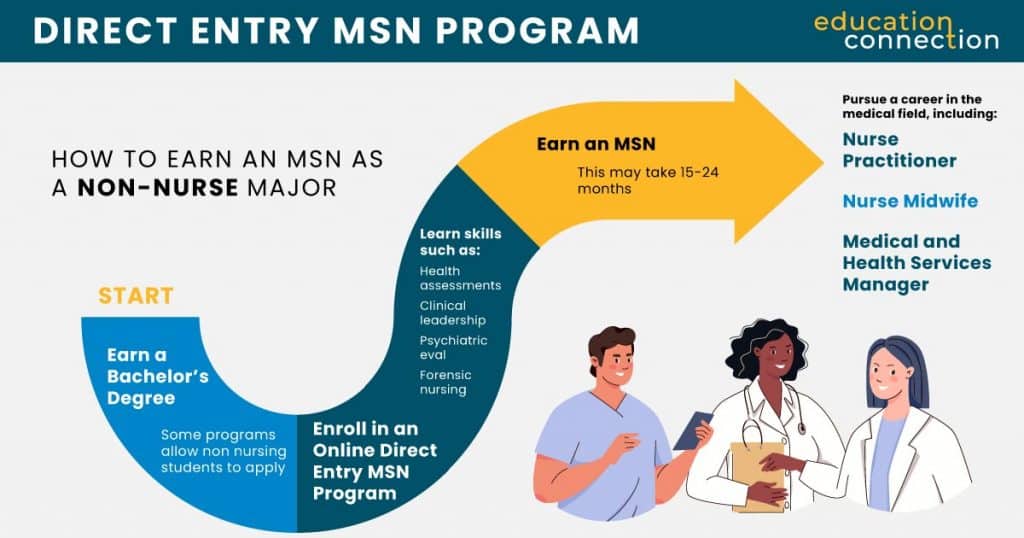How Much Do College Professors Make?
Ever wondered about the earnings of college professors? If you’re considering a career in teaching, you might be curious about their income. According to the U.S. Bureau of Labor Statistics, the median wage for professors stands at $83,980 per year, as of May 2023. However, several factors influence a professor’s salary, such as their experience, training, and educational background. While salary range is essential, it’s not the only aspect to consider when delving into the world of professorship. Many professors go above and beyond, engaging in scholarly article publications and conducting research. Those who complete graduate school often earn at the national average mentioned above. So, how much do college professors earn?
Types of College Professors
Many people do not know there are numerous types of college professors. They range based on the type of work they do. They also range based on their experience and how long they have worked for the school. Here are some types of college professors.
Law Professor
Annual Median wage: $127,360
Law professors have a primary focus on teaching law, which encompasses various aspects, such as social justice and political science. Becoming a law professor typically involves earning a Juris Doctorate (JD) degree from a reputable law school and passing the bar exam. Some may have graduated from renowned law schools, while others might have a background in legal practice. Many law professors engage in publishing law reviews and contributing to legal journals as part of their academic endeavors.
Economics Professor
Annual Median wage: $115,300
Economics professors primarily specialize in teaching business courses, with a particular emphasis on economics. In many academic institutions, a Ph.D. is often a requirement for individuals to become economics professors. These professors typically possess extensive experience in the field, often having worked as economics educators for a considerable period before assuming professorial positions. Many of them have also contributed to the field through publications in recognized economic journals and publications.
Engineering Professors
Annual Median wage: $106,910
Engineering professors typically specialize in specific areas of engineering. For example, some may be civil engineering professors, imparting knowledge about the construction industry and city planning. Their expertise could encompass roads, airports, water supply systems, and other related fields. On the other hand, mechanical engineering professors may teach math and physics courses while also engaging with computer design and programming. Their role involves guiding students in understanding machine construction. Becoming a professor in these disciplines often requires a Ph.D. qualification.
Health Specialties Professors
Annual Median wage: $105,650
Health specialties professors teach at all levels of health care science and medicine. Most of the time, these professionals hold a medical degree and license. (That may include an MD, MBChB, MBBCh, DO, MBBS, or BMBS). Many could also have some experience working in the field. They often have education credits to their name as well. Most often, schools require these professors to have experience.
Science Professors
Annual Median wage: $100,690
These professors often specialize in specific fields, such as earth science, atmospheric science, or marine science. With extensive education and research background in their respective areas, they bring a wealth of knowledge to their students. Geoscience professors, for instance, typically hold a PhD, indicating their involvement in the research aspect of their field. Many academic institutions seek professors with published research projects, reflecting their active contributions to the scientific community. Moreover, some of these professors may also possess practical experience within their field, further enriching their teaching approach. Years of educational experience contribute to their expertise, making them valuable mentors for aspiring students.
Physics Professors
Annual Median wage: $98,020
This is another science type of professor. These teachers will often teach at a higher level of science. They tend to have more advanced training, but also more working knowledge in these fields. This may include a nuclear or quantum science degree. Others may work in astro physics. Hands on experience is helpful. Most important is having a research study or to be published for scientific findings to work as a physics professor. Many may also have a PhD in their selected field.
Architecture Professors
Annual Median wage: $105,770
Architecture professors may have worked in this field in some form for years. Some may hold a PhD in this area. This type of instruction is heavily science and math based. That is why this type of teacher often holds an advanced education in these areas. Some are published. Others are known for their innovation and successful projects.
Business Professors
Annual Median wage: $97,130
Business professors are often versatile. They may teach a range of different aspects of business. Some may concentrate in one or more areas. This may include business management or marketing. Finance and accounting professors are also very focused. Many business professors have advanced degrees. This could be a Doctor of Philosophy (PhD) degree or a Doctor of Business Administration (DBA). It also may be common for business professors to have working experience in some area. Many of these teachers could be published in academic journals. They often have a significant amount of experience in public events or academic conferences.
Computer Science Professors
Annual Median wage: $96,430
Computer science professors work with students teaching programming and software engineering. They often have a lot of skills in this area from their own studies. Many may have a PhD. Some could have worked for industry leaders. They may have concentration in areas of information technology. Others may have experience in computer engineering solely. These professors may also be some of the leaders in their field.
Biology Professors
Annual Median wage: $83,920
These professors teach in areas like biology or zoology. They may often be published in research reports or may have conducted research studies. They may focus in specific areas of biology, though some are more general. Often, they hold a PhD. Biology instructors are often involved in research. Research grants and programs may help make this possible. Others might work with post doctoral fellows.
Chemistry Professors
Annual Median wage: $85,810
Chemistry professors may be very focused. Some focus on areas of macromolecules. Others are stereochemistry specialists. Still, others focus on biopolymers. These teachers often have advanced education and often are published. They may engage in research at the school they teach at on a routine basis. They may often be published in scientific journals. Many are involved in an ongoing basis. Some have industry expertise from having worked in the field. Many are education based.
Psychology Professors
Annual Median wage: $82,140
These professors teach psychology. This requires them to have advanced education in this area. Most may have an advanced teaching degree. However, many also have field experience. They may have worked in a clinical setting. Others are focused on the lab elements of psychology and research. Many are published in scientific or medical research studies. In their university positions, psych professors often run studies and participate in publications.
Sociology Professors
Annual Median wage: $82,670
These professors work in both the sciences and in psych. They often provide education to students on a path towards sociology, but also work with students in related fields. Many will be published in papers and working to continue to do this on an ongoing basis. Many are actively engaged in research. Their students often participate in it. Some will engage in field work especially in underdeveloped areas. Many have a working history in these fields.
Philosophy Professors
Annual Median wage: $79,930
These professors may focus on religion while others focus on strictly philosophical studies. They may also work in areas of business ethics and metaphysics. Often, these professors may have a strong history in research. They may become experts in one or more areas and generally focus in these areas. Philosophy professors are always exploring new thoughts and methods of doing things. That is why they have such a varied line up of courses to teach. They do a good deal of their own research and publishing as well.
History Professors
Annual Median wage: $82,140
History professors teach history courses, but also often teach areas related to this. Some will work in the field, such as in museums or even archaeology. Others will work in historical societies or hold memberships in them. They could become experts in history, often in a certain area or type of history, but many are also dedicated to research. Many history teachers are diverse in their knowledge base. They may publish books or articles on areas that are important to them or where they concentrate.
Nursing Professors
Annual Median wage: $80,780
Not all nursing instructors hold the position of professor. Many universities hire nursing professors for both hands on education and lecture related to medicine and nursing practice. They may work with undergrad or grad students. Often, nursing professors must hold a registered nurse (RN) degree. They may need a license as well. Many may continue their education to earn a doctorate degree. Some professors in this field publish in scientific papers. Others work to develop new technology or innovations in the field. Nearly all may have some level of on the job experience.
Math Science Professors
Annual Median wage: $81,020
Math professors focus their education in math and mathematical sciences. They may teach everything from beginning levels of math to in depth, advanced topics. Many will concentrate in one or more areas. This may include areas as far reaching as automorphic forms and game theory. Many math teachers are often working to advanced their field through research. Some are published.
Social Sciences Professors
Annual Median wage: $77,750
These professors often teach courses, but may also engage in research studies on college campuses. In addition to this, many also have significant fieldwork experience. Some may also engage in social science research in underdeveloped areas. They often have a PhD but continuing education is usually a part of their work.
Communications Professors
Annual Median wage: $79,910
Those working as a communications prof may teach a range of courses. This could include areas of public relations. It may include broadcasting or journalism. Many may have some level of media communications skill. In addition to this, most communications profs will have working skills and some experience in the field they focus in.
Art and Music Professors
Annual Median wage: $80,360
Those working in the area of music, arts, and performance may have a significant amount of experience in the field. They may teach a range of subjects, such as theater or vocals, but many professors will focus in one or more areas. They often work hand in hand with students.
English Professors
Annual Median wage: $78,130
These professors teach various areas of English studies. This includes language and literature. They may also focus in areas such as creative writing or critical theory. Many will also have advanced studies and experience in the field. They often hold doctorates. Research may not be heavy in this area, but continuing education might be.
Education Professors
Annual Median wage: $73,240
Education professors teach new teachers. They teach undergraduate students and some masters programs. Some also hold a philosophy in education degree. Many are published in some way, often in educational methods. They may have experience working as educators.
Levels of Professors
Teaching higher education may be complex. While looking at university professor salaries is important, it is also important to consider the level of the professor. This could indicates the type of work the professor does and his or her experience. Here is a list of professor levels. They differ by school. A community college may use a different term.
Adjunct Instructor
Adjunct instructors often teach entry level courses. This may also be called a part time lecturer or part time instructor. Many do not receive a full time salary or benefits. They may work less often in their college program. Many will have additional jobs outside of the college setting. These instructors may go on to more advanced teaching later.
Graduate Teaching Assistant
A graduate teaching assistant is a GTA. They tend to work much like an adjunct instructor. The difference is that they are students themselves. Many will be in a master’s program. Some graduate programs offer students a stipend. This may help covers the cost of tuition and pays a small wage. In return, they may teach one or more classes. These are not full time faculty members.
Visiting Professor
A visitor professor is working temporarily at the school. They may be called a visiting researcher. Sometimes they are called a visiting scholar. The term differs based on the school. Some schools use these pros to help them offer a new perspective for students. They may collaborate with other students. In the U.S., it is common for visiting professors to be from another country. This is not always the case. Sometimes, professors on sabbatical may still take appointments as a visiting professor.
Assistant Professor
These individuals support the work of a professor. They tend to not work full time. They may help in areas of conducting research. Others may work with students directly. Working as an assistant professor could be the first step towards tenure. These are usually hard to get jobs. Many times, assistant professors already hold a doctorate degree.
Associate Professor
These are generally tenure seeking professors. This is often a tenure track position. It falls between assistant and full professorship. This may differ from one school to the next. Many professors reach this level when they achieve tenure. This may take up to seven years to complete. Publications and research are a part of the process. These are often full time faculty. They may earn faculty salaries.
Full Professor
Full professorship may often be earned after years of holding an associate level of tenure. This is generally the highest promotion for tenure track professors.
Endowed Professor
These professors may also be called an endowed chair. It is a type of honor given to a faculty member. This typically is due to the research carried out by the professor.
Distinguished Professor
This is a title given to a top tenured professor at the school. They are often some of the most well respected in their field. Years of experience matters in this field. Private colleges often have these types of professors.




